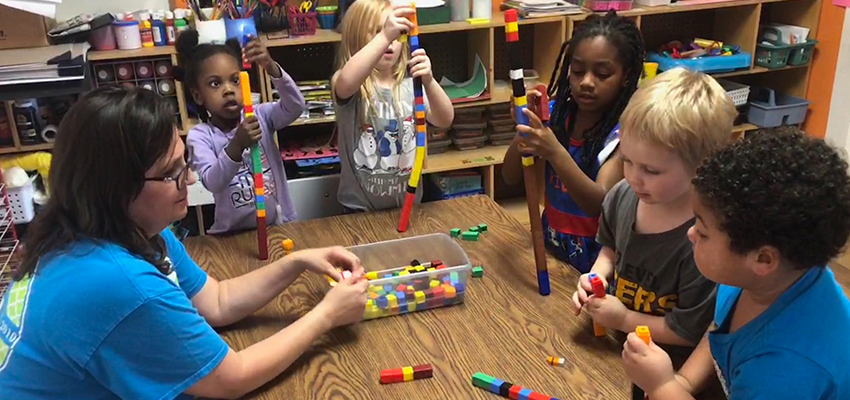Pre-K vet: Program helps kids, schools
Published 1:28 am Saturday, February 17, 2018

- Mrs. Carpenter instructs the kids to stack the blocks. She is shown with Myhles Wright, Madison Richardson, Olive Triber and Tobey Crain.
One might call her the dean of Pre-K education in Covington County.
Melanie Carpenter, who teaches Pre-K at Red Level Elementary and has since the school began the program 17 years ago.
“I was actually teaching third graders when Red Level received the grant to open up a Pre-K program,” she said.
 “I was offered a position as a Pre-K teacher and I never looked back. I’ve been at Red Level for 24 years, 17 of those years have been as a Pre-K teacher.”
“I was offered a position as a Pre-K teacher and I never looked back. I’ve been at Red Level for 24 years, 17 of those years have been as a Pre-K teacher.”
The Red Level Elementary Pre-K program was among the first in the state. The program is located in a house next door to the school. This helps children feel at home, Carpenter said.
Carpenter said that enrolling children into Pre-K isn’t just beneficial to the child, but to the school.
The idea is that Pre-K will end with the children already knowing what they need for Kindergarten.
“Most children who go into kindergarten without that experience of Pre-K and adjusting to a structured environment, struggle. You can definitely tell which child has attended Pre-K and which hasn’t,” she said.
“Pre-K is beneficial in the fact it introduces children to social experiences and a very structured environment.”
Another benefit to Pre-K is the abundance of hands-on learning, Carpenter said.
The children are taught math, history, literacy and are often broken up into groups to focus on one study.
All of the subjects are taught with a hands-on learning method.
“Everything we do is hands-on learning. We don’t do worksheets here. We make it fun,” she said.
“Most of our day is playtime. But the play has a purpose,” she said. “Children learn through playing.”
The Red Level Elementary Pre-K program can only accommodate 18 children per year, and there are a limited number of spaces available across the state. But the $6.6 billion state education budget approved by the Alabama State House of Representatives Tuesday will allow more than 2,500 additional four-year-olds to enroll in Pre-K in the 2018-2019 school year. The measure has not yet been approved by the state senate.
“Right now, we don’t have enough space to have anymore children in the program,” Carpenter said. “It’s important that by expanding the Pre-K budget that we can educate more 4-year-olds and prepare them academically before they reach kindergarten.”






